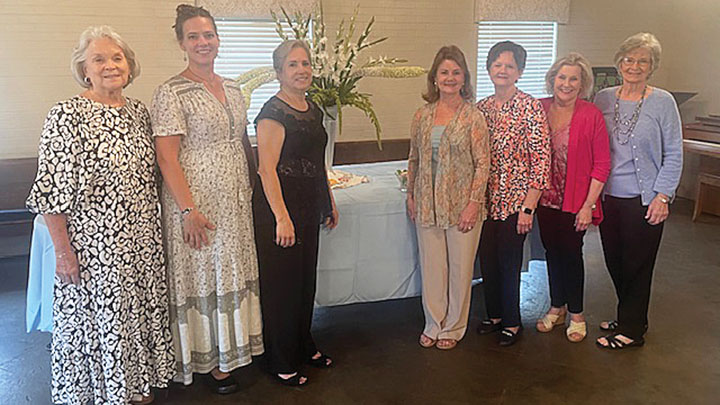Officials hope to curb illegal use of OxyContin
Published 5:00 am Wednesday, June 13, 2001
Illegal use of OxyContin is reaching epidemic proportions, andlaw enforcement authorities are trying to curb diversion of theprescription painkiller, a Mississippi Bureau of Narcotic officialtold area physicians Tuesday.
“This drug is causing more social problems in Mississippi thanall other diverted drugs combined,” said Tim Rutledge, assistantMBN director, while speaking to the South Central MississippiMedical Society at the Brookhaven Country Club.
Rutledge said $4.43 million in Medicaid payments was spent lastyear on OxyContin, which is being referred to as “Heroin of theHollow” in areas around West Virginia and Kentucky. He added thatabout 22 percent of prescription drugs are covered by Medicaid.
Trending
“We have bought a lot of OxyContin in Mississippi,” Rutledgesaid.
Rutledge and fellow agent Mike Aldridge, who works in the McCombMBN office, estimated that about 90 percent of the Oxyprescriptions are legitimate. However, the rest is being divertedto the streets through a variety of methods.
Those methods include prescription forgery, “doctor shopping,”users calling in prescriptions themselves with no verification withphysicians by the pharmacists, self-administered prescriptions byphysicians and pharmacists who are addicted, and burglaries.Rutledge said there is about one drug store robbery a week in thestate, but armed robberies are rare.
“Doctor shopping” is where a person goes to different physiciansto get prescriptions but do not reveal they have seen other doctorsabout the same ailment.
For cancer patients and chronic pain sufferers, OxyContin offersa time-released medication that eases their pain. However, withcoating removed, the pill can be dissolved and injected like heroinfor a high that is similar to that drug.
Rutledge and Aldridge said the drug is often used in conjunctionwith other drugs so they have a multiple effect on the user.Alcohol frequently is part of the mix as well.
Trending
“OxyContin is the most potent thing out there right now,”Rutledge said.
The drug is highly addictive. Aldridge said he knew first handof people who had intentionally injured themselves so they couldget an Oxy prescription.
“That kind of thing happens all the time,” Aldridge said.
At a pharmacy, Rutledge said an 80-milligram tablet would cost$8. On that the street, the cost for that tablet climbs to $80.
Aldridge echoed the street cost total in discussing MBNundercover buys. He said there have not been any undercover buys inBrookhaven, but there have been several in Pike County.
Rutledge spoke with physicians about ways and programs under wayto prevent OxyContin from reaching the streets. He said MBN isworking with the Drug Enforcement Agency, Board of MedicalLicensure and others.
“We have some innovative programs I think will help curb thisproblem,” Rutledge said.
Mississippi is one of five states chosen for a pilotprescription monitoring program to track drugs. Rutledge expectedCongress would enact similar programs in the future.
One way physicians can help, Rutledge said, is to keepprescription pads secured and out of reach of potential abusers. Hesaid Indiana has mandated watermarked prescription pads to preventphotocopying or alteration.
Rutledge said he had not seen a lot of cases in the state wheredoctors were purposefully writing a prescription for a personaddicted to OxyContin.
Other helpful methods hopefully in the future will includetotally electronic prescriptions, better patient identificationwhen they pick up a prescription, restrictions so drugs likeOxyContin won’t be prescribed for a hangnail, and more publicityabout diversion and prescription abuse. Rutledge recent publicityabout OxyContin was not unwarranted and has helpedtremendously.
Doctors Tuesday expressed concern that publicity and enforcementcould reduce doctors writing OxyContin prescriptions for patientswho truly need it. Rutledge said that was not the agency’sintention.
“I hope people who need this drug will always have it,” Rutledgesaid.
Rutledge said MBN is working to educate coroners about overdosedeaths and is considering asking the legislature to requirereporting of those kinds of deaths. He said there have been eightconfirmed OxyContin overdose deaths in the state.
“Our problem is there is no requirement for reporting overdosedeaths,” Rutledge said.
To prevent “doctor shopping,” Rutledge said MBN is working withthe licensure board on a standard form for patients to declare thatthey are not seeing or getting medication from another physicianfor the same condition. Giving a false statement on the form wouldgive authorities a five-year felony case to pursue.
“It’s a good tool for us,” Rutledge said.





